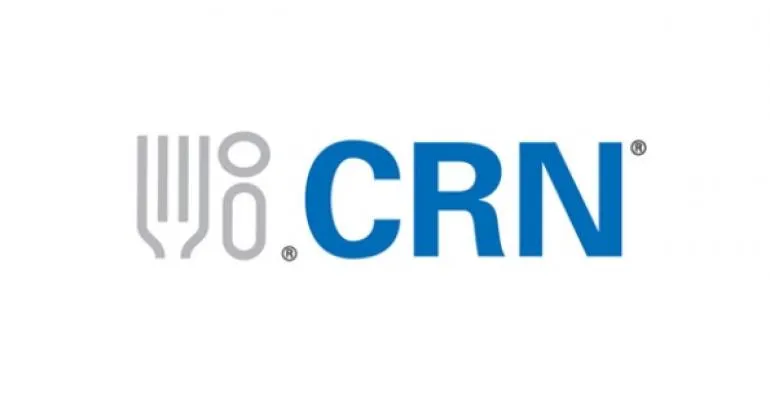
TORONTO — Continuing to expand pharmacies’ health care role, the Ontario Ministry of Health and Long-Term Care will enable pharmacists to administer vaccines for 13 diseases in addition to seasonal influenza.
The ministry said Thursday that, starting Dec. 15, Ontario pharmacists will be able to give customers vaccinations for shingles (herpes zoster), chicken pox (varicella), hepatitis A and B, human papillomavirus (HPV), haemophilus influenzae type B (Hib), pneumococcal disease, meningococcal disease (bacterial meningitis), rabies, typhoid, yellow fever, Japanese encephalitis and tuberculosis (bacille Calmette-Guérin, or BCG).
These vaccines can be administered in participating pharmacies to those ages 5 and older. The list includes common travel immunizations, such as for hepatitis A/B, typhoid and rabies. Ontario pharmacists have been administering flu shots free since the ministry granted them that authority in October 2012.
“Pharmacists across the province play an important role in helping Ontarians stay healthy through immunization. Thanks to their success providing people the flu shot, we are now inviting them to deliver the additional vaccines being announced today. This is another way our government is making it easier for people to access the services they need,” Ontario Health Minister Eric Hoskins said in a statement.
When pharmacist-provided flu shots first became permitted in the 2012-2013 flu season, more than 250,000 Ontarians received a flu vaccination that way, reported Shoppers Drug Mart, Canada’s largest drug chain and a Loblaw Cos. subsidiary. In the most recent flu season, 2014-15, that number more than tripled to about 764,000 people.

Eric Hoskins, Ontario health minister
“We applaud the Ontario government for recognizing the value pharmacists bring by allowing them to administer these vaccinations,” stated Jeff Leger, executive vice president of pharmacy and health care at Shoppers Drug Mart. “Flu vaccination rates have increased in the province since pharmacists have been able to immunize. Allowing them to administer additional vaccines in the future is an important next step in helping to protect Ontarians’ health both here and abroad.”
Pharmacies’ accessibility — with locations across Ontario plus extended hours of operation at night and on weekends — offers many patients a convenient option to doctors’ offices, health clinics and travel clinics, pharmacy groups noted.
“The Neighbourhood Pharmacy Association of Canada commends the Ontario government on today’s announcement, which recognizes the vital role that our member pharmacists and pharmacies can play to ensure that when Ontarians travel away from home, they can do so protected by medically essential vaccines, provided at their neighborhood pharmacy,” commented Neighbourhood Pharmacies chief executive officer Justin Bates.
The move is part of Ontario’s Immunization 2020, strategy, which focuses on improving access to vaccines, including taking advantage of the health care capabilities of pharmacists to help improve vaccination rates.
“The Ontario Pharmacists Association is very pleased with today’s announcement, which leverages pharmacists’ skills, training and knowledge to improve Ontarians’ access to travel vaccines, and a select number of other vaccines that will help patients stay healthy here at home and abroad,” according to Dennis Darby, CEO of the Ontario Pharmacists Association. “For the past four years, Ontarians have trusted pharmacists to administer their flu shots. By enabling pharmacists to provide a wider number of vaccines, and broadening pharmacists’ scope of practice, we can further contribute to a sustainable health care system and help drive increased vaccination rates, while helping patients manage this important area of their health.”
Patients are being encouraged to speak to a pharmacist or primary care provider to find out which vaccines they can receive directly at a pharmacy. Not all immunizations require a prescription from a primary care provider, and in some cases patients will be able to consult directly with a pharmacist and get the vaccine at their pharmacy.
Most of the vaccines covered in the ministry’s announcement aren’t publicly funded, “meaning that patients will need to pay for both the product and its administration, whether they are vaccinated at the pharmacy or at a doctor’s office or clinic,” noted Sean Simpson, chairman of the Ontario Pharmacists Association. One notable exception is the shingles vaccine, which is free for Ontarians ages 65 to 70 when they are vaccinated at a doctor’s office or clinic.
“We are encouraged by today’s announcement, and excited to be able to offer more health care options to patients. However, there is still more opportunity for pharmacists to have a positive impact on patient health and provincial vaccination programs,” Simpson stated. “We look forward to continuing our work with the Ministry of Health and Long-Term Care to further expand the list of vaccines offered at pharmacies to include those that are publicly funded.”
In October 2012, Ontario approved regulations that allowed pharmacists to provide a wider range of health services. They include adapting and renewing existing prescriptions; prescribing certain drugs to help people quit smoking; administering (by injection or inhalation) specific substances to a patient for the purpose of education and demonstration; piercing the skin to support patient self-care and monitoring of a chronic disease (such as diabetes); and giving a flu shot to a person age 5 and older (as part of Ontario’s Universal Influenza Immunization Program).
“Governments, public health agencies and ultimately patients will benefit from further integrating pharmacists and pharmacies in the delivery of Ontario’s health care services,” Neighbourhood Pharmacies’ Bates said Thursday.
Since Ontarion introduced the flu shot program in 2012, more than 1.8 million flu vaccinations have been administered in the province’s pharmacies, and that number continues to rise each flu season, the Ontario Pharmacists Association reported.
A 2015 report by the Canadian Centre for Economic Analysis/RiskAnalytica, conducted on behalf of the association, estimated that allowing pharmacists to administer pneumococcal, shingles and HPV immunizations would result in another 4.3 million vaccines administered for pneumococcal diseases, 7.6 million additional vaccinations for shingles and another 275,000 HPV vaccines by 2045.
“Patients trust that pharmacists have the skills and knowledge to provide a variety of vaccinations, and they appreciate the convenience of being able to access this type of care outside of regular physician’s hours or clinic hours,” Simpson added. “By having pharmacists provide travel vaccinations, as well as select other vaccines, we are contributing to a sustainable health care system while helping patients manage this important area of their health.”
The association said pharmacists can also administer vaccines in British Columbia, Alberta, Saskatchewan, Manitoba, New Brunswick, Nova Scotia, Newfoundland and Prince Edward Island.









